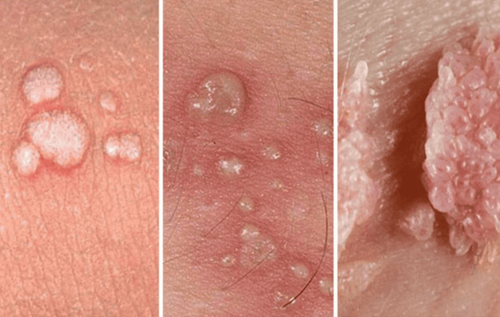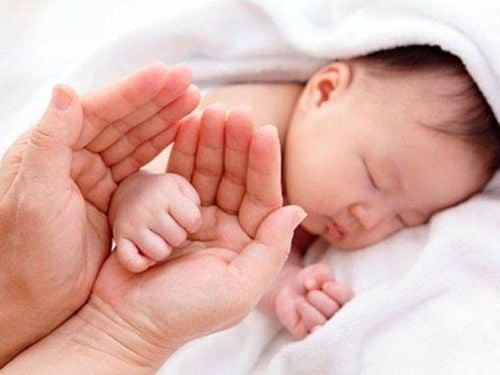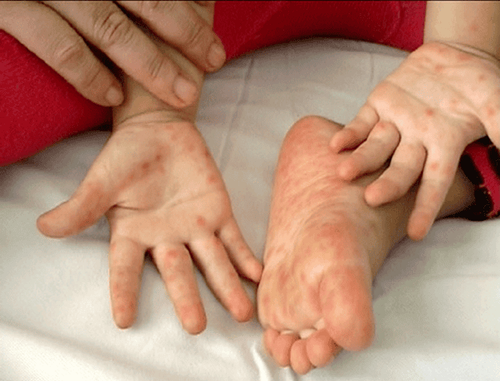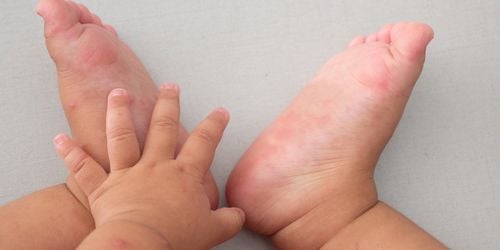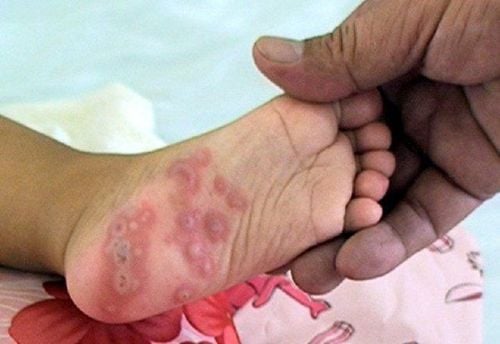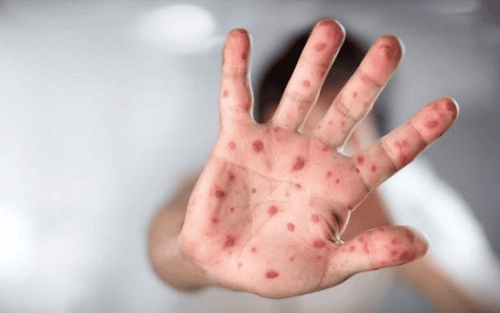This is an automatically translated article.
Hand, foot and mouth disease is a common disease in young children, when the disease usually goes away without treatment, however, in some emergency cases, children need to use antibiotics.1. Hand, foot and mouth disease is what?
Hand, foot and mouth disease is an infectious disease caused by Enterovirus (Enterovirus has many different forms such as Coxsackievirus, Echovirus,...). Coxsackievirus A16 is the cause of hand, foot and mouth disease in young children, this is a mild, contagious disease and patients recover in about 7-10 days without intensive treatment.Hand, foot and mouth disease is transmitted from person to person and easily breaks out into an epidemic caused by an intestinal virus. Coxsackie virus A16 and Enterovirus 71 (EV71) are two common groups of pathogens. Skin and mucosal lesions in the form of blisters in special locations such as oral mucosa, palms, soles, buttocks, and knees are the main manifestations of hand, foot and mouth disease. If the disease is not detected and treated promptly, there is a risk of many dangerous complications such as encephalitis-meningitis, myocarditis, acute pulmonary edema leading to death. Severe cases of complications are often caused by EV71. Saliva, blisters and feces of infected children are the main sources of transmission. The disease usually occurs all year round and hand, foot and mouth disease can occur at any age, but is usually concentrated in children under 3 years of age.
2. Signs of hand, foot and mouth disease
Children with hand, foot and mouth disease often have the following symptoms:
Fever: the child may have a mild fever or a high fever Appearance of blisters, erythema on palms, feet, knees, buttocks Children with mouth ulcers , throat ulcers Children sleep or startle, fussy Children fussy, lethargic, shaking limbs, lethargic Children having difficulty breathing, fast breathing, fatigue Unsteady walking Vomiting a lot Children having convulsions, coma
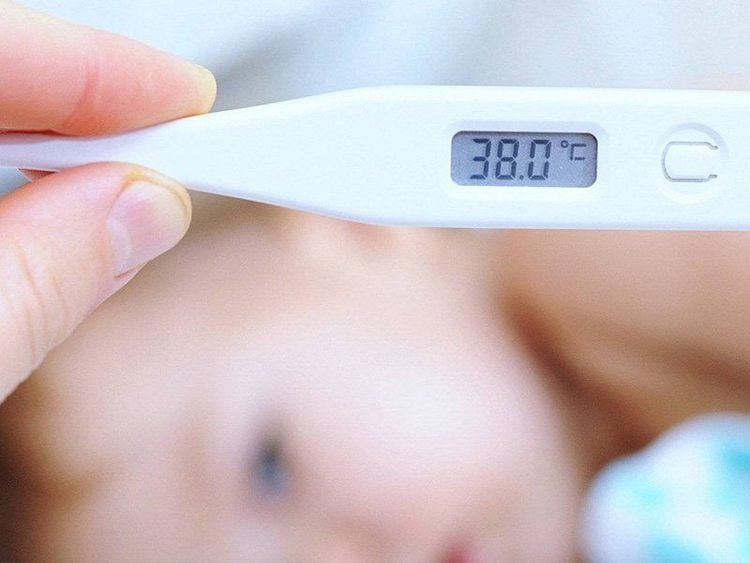
Trẻ mắc tay chân miệng có thể xuất hiện sốt
If not handled in time, the disease can cause many serious complications such as meningitis, pneumonia, encephalitis .... Parents and families need to closely monitor children to detect early manifestations. adverse effects of the disease to prevent dangerous complications.
Take your child to medical facilities immediately to be monitored and treated when any of the above symptoms appear. The possibility of recovery is very high if the patient is hospitalized early and treated promptly. During the time the child is sick, parents need to pay attention to keep the child away from school from 1 week to 10 days to avoid infecting other children. Both the patient and the caregiver must remain in isolation for 10 days after being cured of the disease.
3. Do you have to take antibiotics if you have hand, foot and mouth disease?
Currently, there is no specific treatment for hand, foot and mouth disease, only supportive treatment. When the child has a high fever of 38 degrees or higher, give the child a fever-reducing paracetamol at a dose of 10-15mg/kg, if the fever is still high, after 4-6 hours, it can be used again. An rectal suppository can be used if the child cannot swallow or has difficulty taking the medicine.
Besides, parents should give the child oresol or hydrite solution... to add water and electrolytes to the child. Add vitamin C and zinc when children have signs of fever and mouth ulcers, wipe their mouths before and after meals with glycerin borate solution. Disinfection and pain relief with oral gel (kamistad, zyttee...) to help children eat and drink easier.
In addition to using disinfectant solution, before cooking, feeding children, after contact with children and after using the toilet, parents and caregivers need to wash their hands with soap. Use 2% chloramine solution or other disinfecting solutions to clean and soak children's toys and clothes. Children's daily eating utensils such as bottles, bowls, spoons... need to be sterilized and boiled.

Trẻ bị tay chân miệng có thể bổ sung dung dịch oresol theo chỉ định của bác sĩ
4. How to prevent hand, foot and mouth disease
Currently, there is no cure for hand, foot and mouth disease, so when a child gets sick, it is necessary to do the following things:
Should wear a medical mask when taking care of children and after coming into contact with sick children need to wash clean hands Wash and clean the child's body with soap and water every day Apply the 6-step handwashing guideline of the Ministry of Health, encourage children to wash their hands with soap Use hand sanitizer Chloramine B 2% bacteria to soak children's clothes or diapers or boil water before washing It is recommended to boil the personal items of children with hand, foot and mouth disease such as: toys, milk bottles, drinking glasses, rice bowls , spoon... and used separately for each child. Children's living room should be well ventilated and cleaned regularly with disinfectant solutions. Pediatrics Department - Vinmec International General Hospital is the address for receiving and examining diseases that infants and young children are susceptible to: viral fever, bacterial fever, otitis media, pneumonia in children.. .. With modern equipment, sterile space, minimizing the impact as well as the risk of disease spread. Along with that is the dedication from the doctors with professional experience with pediatric patients, making the examination no longer a concern of the parents.
If there is a need for consultation and examination at the Hospitals of the National Health System, please book an appointment on the website to be served.
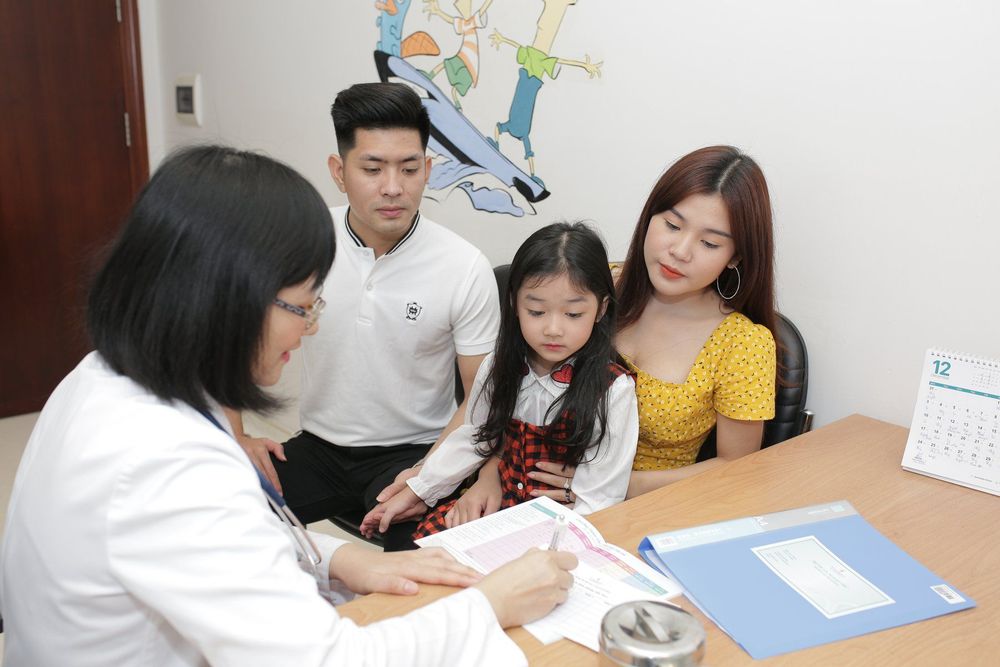
Cha mẹ nên đưa trẻ đến gặp bác sĩ để được tư vấn và điều trị kịp thời
Please dial HOTLINE for more information or register for an appointment HERE. Download MyVinmec app to make appointments faster and to manage your bookings easily.




